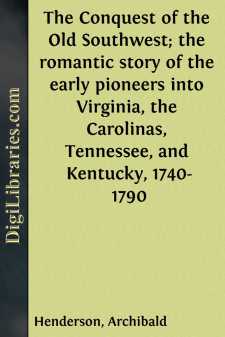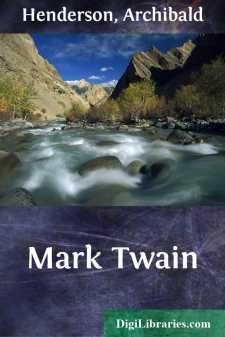Categories
- Antiques & Collectibles 13
- Architecture 36
- Art 48
- Bibles 22
- Biography & Autobiography 813
- Body, Mind & Spirit 142
- Business & Economics 28
- Children's Books 14
- Children's Fiction 11
- Computers 4
- Cooking 94
- Crafts & Hobbies 4
- Drama 346
- Education 46
- Family & Relationships 57
- Fiction 11829
- Games 19
- Gardening 17
- Health & Fitness 34
- History 1377
- House & Home 1
- Humor 147
- Juvenile Fiction 1873
- Juvenile Nonfiction 202
- Language Arts & Disciplines 88
- Law 16
- Literary Collections 686
- Literary Criticism 179
- Mathematics 13
- Medical 41
- Music 40
- Nature 179
- Non-Classifiable 1768
- Performing Arts 7
- Periodicals 1453
- Philosophy 64
- Photography 2
- Poetry 896
- Political Science 203
- Psychology 42
- Reference 154
- Religion 513
- Science 126
- Self-Help 84
- Social Science 81
- Sports & Recreation 34
- Study Aids 3
- Technology & Engineering 59
- Transportation 23
- Travel 463
- True Crime 29
The Conquest of the Old Southwest; the romantic story of the early pioneers into Virginia, the Carolinas, Tennessee, and Kentucky, 1740-1790
Categories:
Description:
Excerpt
INTRODUCTION
The romantic and thrilling story of the southward and westward migration of successive waves of transplanted European peoples throughout the entire course of the eighteenth century is the history of the growth and evolution of American democracy. Upon the American continent was wrought out, through almost superhuman daring, incredible hardship, and surpassing endurance, the formation of a new society. The European rudely confronted with the pitiless conditions of the wilderness soon discovered that his maintenance, indeed his existence, was conditioned upon his individual efficiency and his resourcefulness in adapting himself to his environment. The very history of the human race, from the age of primitive man to the modern era of enlightened civilization, is traversed in the Old Southwest throughout the course of half a century.
A series of dissolving views thrown upon the screen, picturing the successive episodes in the history of a single family as it wended its way southward along the eastern valleys, resolutely repulsed the sudden attack of the Indians, toiled painfully up the granite slopes of the Appalachians, and pitched down into the transmontane wilderness upon the western waters, would give to the spectator a vivid conception, in miniature, of the westward movement. But certain basic elements in the grand procession, revealed to the sociologist and the economist, would perhaps escape his scrutiny. Back of the individual, back of the family, even, lurk the creative and formative impulses of colonization, expansion, and government. In the recognition of these social and economic tendencies the individual merges into the group; the group into the community; the community into a new society. In this clear perspective of historic development the spectacular hero at first sight seems to diminish; but the mass, the movement, the social force which he epitomizes and interprets, gain in impressiveness and dignity.
As the irresistible tide of migratory peoples swept ever southward and westward, seeking room for expansion and economic independence, a series of frontiers was gradually thrust out toward the wilderness in successive waves of irregular indentation. The true leader in this westward advance, to whom less than his deserts has been accorded by the historian, is the drab and mercenary trader with the Indians. The story of his enterprise and of his adventures begins with the planting of European civilization upon American soil. In the mind of the aborigines he created the passion for the fruits, both good and evil, of the white man's civilization, and he was welcomed by the Indian because he also brought the means for repelling the further advance of that civilization. The trader was of incalculable service to the pioneer in first spying out the land and charting the trackless wilderness. The trail rudely marked by the buffalo became in time the Indian path and the trader's "trace"; and the pioneers upon the westward march, following the line of least resistance, cut out their roads along these very routes....



